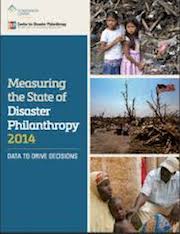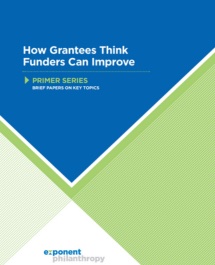Site Search
- resource provided by the Forum Network Knowledgebase.
Search Tip: Search with " " to find exact matches.

CNJG encourages its membership to participate in the Council on Foundations’ annual salary survey to help shape the future of philanthropic compensation.
The Council on Foundations’ 2025 Grantmaker Salary and Benefits (GSB) Survey is now open. The deadline to complete the GSB is Wednesday, May 28, 2025.
Since 1980, the GSB has provided the philanthropic sector with the most comprehensive data on staff composition and compensation in the United States. Grantmakers rely on the findings from this annual survey to plan budgets, benchmark personnel policies and practices, determine salary levels for new and existing staff, and more. Those who complete the survey will receive a free copy of the report (a $598 value), early access to the report’s data tables, and access to create custom benchmark reports.
CoF’s full survey will be published in fall 2025. More information and the survey may be found on the Council on Foundations' website.
Any and every philanthropic organization is invited to participate. Membership is not required with either the Council on Foundations or Council of New Jersey Grantmakers to participate in the survey. For more information, including a list of FAQs, visit the Council on Foundations' website or email the Council on Foundations communications team.
CNJG incorporates the data from this annual survey into our triennial Philanthropy Benefits & Salary Summary Report, most recently published in 2023. CNJG plans to update our report in 2026 again using the data from the Council on Foundations’ survey.
CNJG encourages our members and all philanthropic organizations in New Jersey to complete the CoF survey each year, as this benchmarking data is frequently asked for by our members. The more foundations and other philanthropic organizations that complete the survey, the better and more statistically relevant data we will all have.
For additional information or questions, please contact Craig Weinrich at CNJG.
We will hear from four organizations which have varying focuses and strategies, but share the same goal to help struggling New Jersey communities fight against the growing impact of the coronavirus. Join us for an overview of the purpose and progress of these COVID-19 funds and assistance programs.
We’ll hear about the ALICE Recovery Fund from CEO Kiran Gaudioso and Senior Vice President Theresa Leamy from the United Way of Northern New Jersey and the PHL COVID-19 Fund from Kate Houstoun, Managing Director for Capacity Building at the United Way of Greater Philadelphia and Southern New Jersey. These funds support two different locals and populations reeling from coronavirus crisis. The ALICE (Asset Limited Income Constrained Employed) population is especially vulnerable to economic disruption and illness during this pandemic. The PHL COVID-19 Fund focuses on the 5 southern counties of Atlantic, Burlington, Camden, Cape May, and Cumberland.
We’ll also hear from Tim Sullivan, CEO of the New Jersey Economic Development Authority, who will outline how they are working with philanthropy and nonprofits to develop funds and programs that support our communities during this difficult time. We’ll round out the webinar with a presentation from Wayne Meyer, President of New Jersey Community Capital, who will discuss the Garden State Relief Fund, and its focus on providing low interest loans to nonprofits and small business which have been disproportionately affected by this crisis.
Register now to keep up to date with the latest COVID-19 funds and programs helping to address critical needs and provide equitable relief throughout New Jersey.
Cost: Free for CNJG Member and NonMember Grantmakers.
This program is only open to staff and trustees from grantmaking organizations.
Webinar Video
The New Jersey Historic Trust and the New Jersey State Council on the Arts today announced the FY23 Capital Arts – Historic Locations grant award recipients. This grant opportunity prioritized project proposals that will be used to halt and remediate the physical deterioration of historic locations. There were 13 grants awarded totaling more than $2.6 million, with a maximum award of $250,000.
The FY23 Capital Arts - Historic Locations grant program is presented through a new partnership between the New Jersey State Council on the Arts (Arts Council), a division of the New Jersey Department of State, and the New Jersey Historic Trust (the Trust), affiliated with the Department of Community Affairs. The grant program is designed to assist New Jersey’s nonprofit arts organizations that are operating within buildings that are listed or eligible for listing in the New Jersey Register of Historic Places. Funds may be used for construction expenses related to the preservation, restoration, repair, and expansion to improve or enhance the facility. Grant funding is provided by the Arts Council and reviewed and administered by the Trust.
"Keeping history alive through preservation is key to building generational awareness and providing educational and recreational opportunities," said Lt. Governor Sheila Oliver, who serves as DCA Commissioner. "We are pleased that the New Jersey State Council on the Arts and the New Jersey Historic Trust are combining resources to preserve historic properties, which play a key role in increasing tourism and economic development at both the local and state level."
A year after kicking off an initiative to improve nutrition at schools in its hometown of Camden, Campbell Soup Co. is getting high marks. And over the next five years, the soup and snack giant plans to invest $5 million in Full Futures, a sweeping effort to make sure students are well nourished and ready to thrive — both in the classroom and outside of it.
Armed with research linking school meals and healthy diets to academic success, Campbell executives saw an opportunity to effect change by leveraging the expertise and resources of numerous partners to advance developments in nutrition programming and cafeteria infrastructure across a school district that serves 11,000 students.
Working in partnership with the Camden City School District, as well as several nonprofit and corporate entities, Campbell set out to improve how kids eat at school through cafeteria equipment upgrades, expanded meal programs, nutrition education, reformulated menus and equitable sourcing of local, fresh produce.
Campbell recently reported on its progress with Full Futures, as well as next steps planned to keep the momentum going during the next four years of the campaign.

